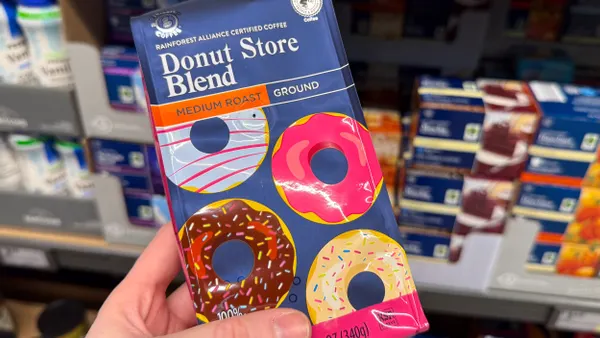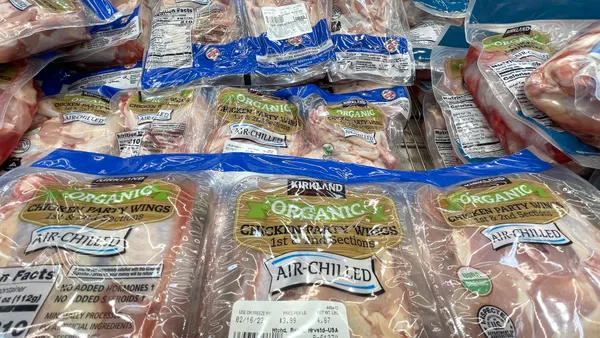Dive Brief:
- Nearly 70% of millennials are willing to pay more for high-quality foods, according to a new survey conducted for Whole Foods by YouGov. Additionally, half of millennials buy more organic products than they did five years ago.
- More than 65% of millennials say transparency in food sourcing is important, particularly in fresh meat and seafood, and nearly 70% say they read labels more closely than they did five years ago.
- About 63% of millennials report trying to incorporate plant-based and unprocessed foods into their diet, and nearly half tried a special diet such as Keto or dairy-free in the past year.
Dive Insight:
An ever-important demographic to the grocery industry, and to Whole Foods in particular, millennials and their eating habits continue to be top-of-mind for retailers shaping their strategies and stores. Consumer Affairs reported on a study from Ibotta that found millennials shop 35% more often than other demographics at stores such as Whole Foods and Sprouts Farmers Market because of the stores' core traits.
This demographic is not known for being price-conscious. In addition to YouGov’s findings, earlier this year Nielsen found that millennials spent 14% more on organic food and beverage than the year prior. Another Nielsen report from 2018 showed that members of the generation were more willing to pay for products with sustainable, environmentally friendly, organic or natural ingredients.
Another notable finding from the survey is that a majority of millennials consider themselves adventurous eaters, with more than 60% making an effort to cook new dishes. Previous research has also found the demographic to be interested in a variety of cuisines and flavors, but a majority of respondents attempting to cook unique dishes on their own speaks to the importance of product assortment in-store. To draw millennial shoppers, grocers will need to maintain well-stocked aisles with plenty of spices, sauces, grains and produce for them to choose from when trying new recipes.
Environmental concerns are playing a bigger role in millennials’ food purchasing decisions, with more than 60% saying they are aware of the implications their food choices have on the environment, the Whole Foods/YouGov survey found. Additionally, about half said they actively seek out products with less plastic and packaging. Companies haven’t shied away from addressing consumer sentiment in this area, with dozens of retailers across the U.S. launching initiatives to reduce plastic and work toward more eco-friendly packaging.
Correction: In a previous version of this article, a statistic regarding millennial shopping was misattributed. Consumer Affairs reported that millennials shop 35% more often at stores such as Whole Foods and Sprouts.












